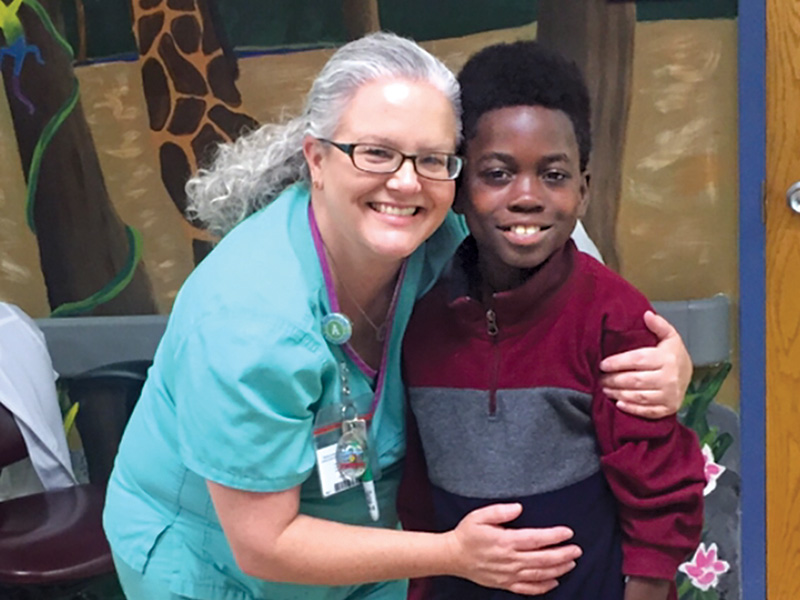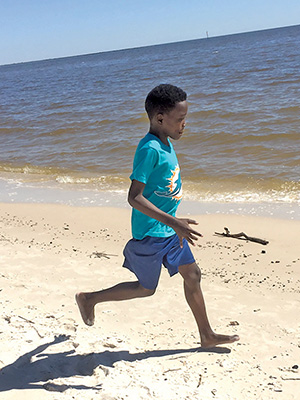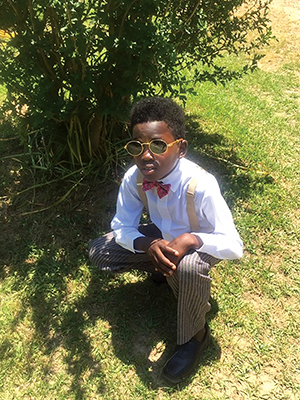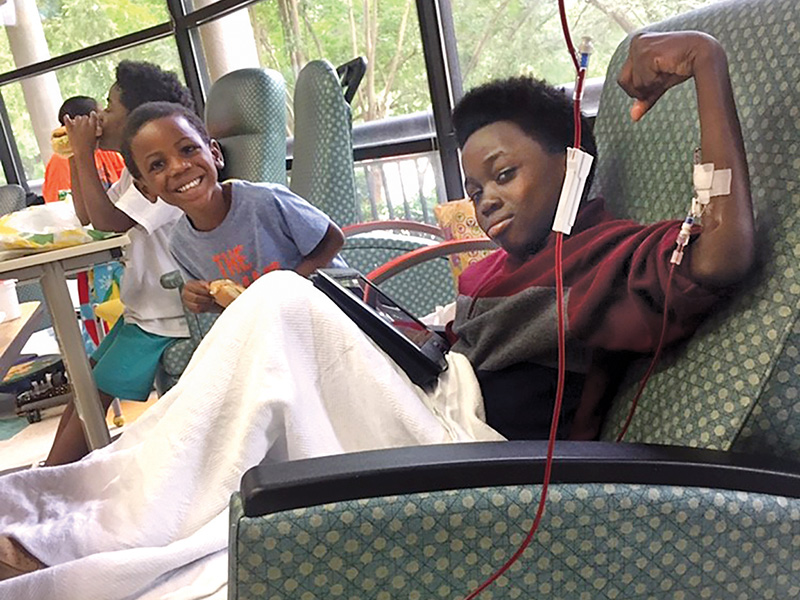Sickle cell, health crisis couldn’t stop ‘Miracle Kid’

Like most boys, 11-year-old Stennis Miller’s aims are set
“He wants to be water boy when the season starts,” his mom Juquitta Ferguson-Docher said.

It’s hardly the only sport that appeals to her first-born, a Kosciusko Upper Elementary fifth-grader this fall. Soccer, swimming, basketball, baseball, hunting, fishing and jumping on the trampoline also catch his interest. “Anything outside. … He’s just a country little boy. You wouldn’t even know he was sick if I didn’t tell you.”
It’s a long way from 2010, and the month Stennis spent at Batson Children’s Hospital that earned him the “Miracle Kid” nickname.
With construction of the new seven-story tower at Batson and its additional operating rooms, pediatric intensive care space, private neonatal intensive care rooms and more, Children’s of Mississippi will be even better able to deliver such care. The Campaign for Children’s of Mississippi aims to raise $100 million in philanthropy for the $180 million
Sickle cell disease is an inherited red blood cell disorder. Rather than the flexible, disc shape red blood cells patients are supposed to have, the cells are stiff and sickle-shaped. They may burst apart or stick to vessel walls, causing a blockage. Though there is no cure, treatments can help with pain and problems related to the condition.
Back in 2010, Stennis was just beginning Head Start. The message on his naptime blanket — “Miracles Happen Every Day” — was one his family would need to hold tight in the weeks ahead.
Stennis ran a fever after school, “always to be treated as an emergency” with sickle cell, his mom said. A first trip to the local emergency room, walking pneumonia diagnosis and a prescription was followed by a painful, sleepless night and another trip to the emergency room. Stennis was in the grips of the worst pain crisis he’d ever had. Doctors sent him to Batson by ambulance.

The very sick boy was admitted to the pediatric intensive care unit (PICU) and test results provided details of his diagnosis: meningitis; staph infection in his bloodstream; accumulated pneumonia and a yeast infection in his lungs. He wasn’t breathing on his own and needed six pints of blood and blood products. His liver and kidneys had shut down, and his body had swollen to twice its normal weight because no fluids were passing through. “To top all that off, they told me he was brain damaged,” from a series of strokes, Ferguson-Docher said. “I felt like the doctors didn’t want to give me false hope, but I also knew they were doing everything they could to help my son.”
Every time they tried to shut off the ventilator, his lungs stopped working. Every time they lowered the sedation meds, his body convulsed. There was nothing she could do except pray, she said. “Trust God and trust the doctors.”
Weeks later, Stennis awoke with his eyes crossed, his mouth twisted and unable to speak or function on his left side. “But he was alive.” A T-shirt for sale in the lobby caught her eye and sparked hope, “Miracles Happen Every Day … Here at Batson Children’s Hospital.”
“Coincidence? Maybe so,” she said, “but I chose to believe it was a sign from God. He always speaks right before you stop believing.”
Stennis slowly regained feeling in his left side. One day in therapy, though he couldn’t yet stand up, he pointed to a tricycle. When therapists took him from the wheelchair to its seat, he started cycling around the room. Therapists and his mom were stunned. Days later, they were able to go home. It’d been more than a month.

Now, Stennis has a cochlear implant for deafness in his left ear. He struggles in school, his mom said, but he’s improved a lot in the last year. He receives blood transfusions every three to six weeks at Batson. “Otherwise, he is actively doing everything he wouldn’t have been able to do if it wasn’t for God and Batson Children’s Hospital, and I am forever grateful.
“At Batson, they really care about their kids.”


